*NURSING > HESI > 2024 HESI Book Mental Health Guaranteed A+ Actual Questions and Answers, Complete 100% (All)
2024 HESI Book Mental Health Guaranteed A+ Actual Questions and Answers, Complete 100%
Document Content and Description Below
1. A client in the critical care unit who has been oriented suddenly becomes disoriented and fearful. Assessment of vital signs and other physical parameters reveals no significant changes, and the ... nurse formulates the diagnosis of Confusion related to ICU psychosis. Which intervention is best to implement based on this client's behavior?: Answer: The best intervention is to organize care so that the client can experience rest periods (C). The critical care unit contains many lifesaving treatment modalities that offer clients an array of auditory, visual, and even painful stimuli. These stressors can result in isolation and confusion. (A) is not practical because the client may need assistance from medical equipment to survive. The client is too ill to receive teaching (B). Although (D) may be supportive, young children are routinely prohibited from critical care units because of increased risk of infectious disease transmission. 2. A 38-year-old client is admitted with a diagnosis of paranoid schizophrenia. When the lunch tray is brought to the room, the client refuses to eat and tells the nurse, "I know you are trying to poison me with that food." Which response by the nurse is the most therapeutic?: Answer: (A) is the best choice because the nurse does not argue with the client or demand that that the client eat but offers support by agreeing to be there if needed, which provides an open, rather than closed, response to the client's statement. (B and C) are challenging the client's delusions, and (B) asks "why." Probing questions, which start with "why," are usually not therapeutic communication for a psychotic client. (D) has not addressed the actual problem—that is, the client's delusions. 3. An adult client who lives in a residential facility is mentally retarded and has a history of bipolar disorder. During the past week, the client has refused to wear clothes and frequently exposes their body to other residents. Which intervention should the nurse implement?: Answer: The client is exhibiting manic behavior related to bipolar disorder, and the nurse should redirect the client to activities that are physically demanding (B) so that energy can be expended in a socially acceptable manner. Psychotic clients are not capable of (A). When exhibiting acting-out behavior, the client is distracted and (C) is difficult. (D) is likely to increase manic behaviors, such as mood swings and acting-out behaviors. [Show More]
Last updated: 1 year ago
Preview 1 out of 9 pages
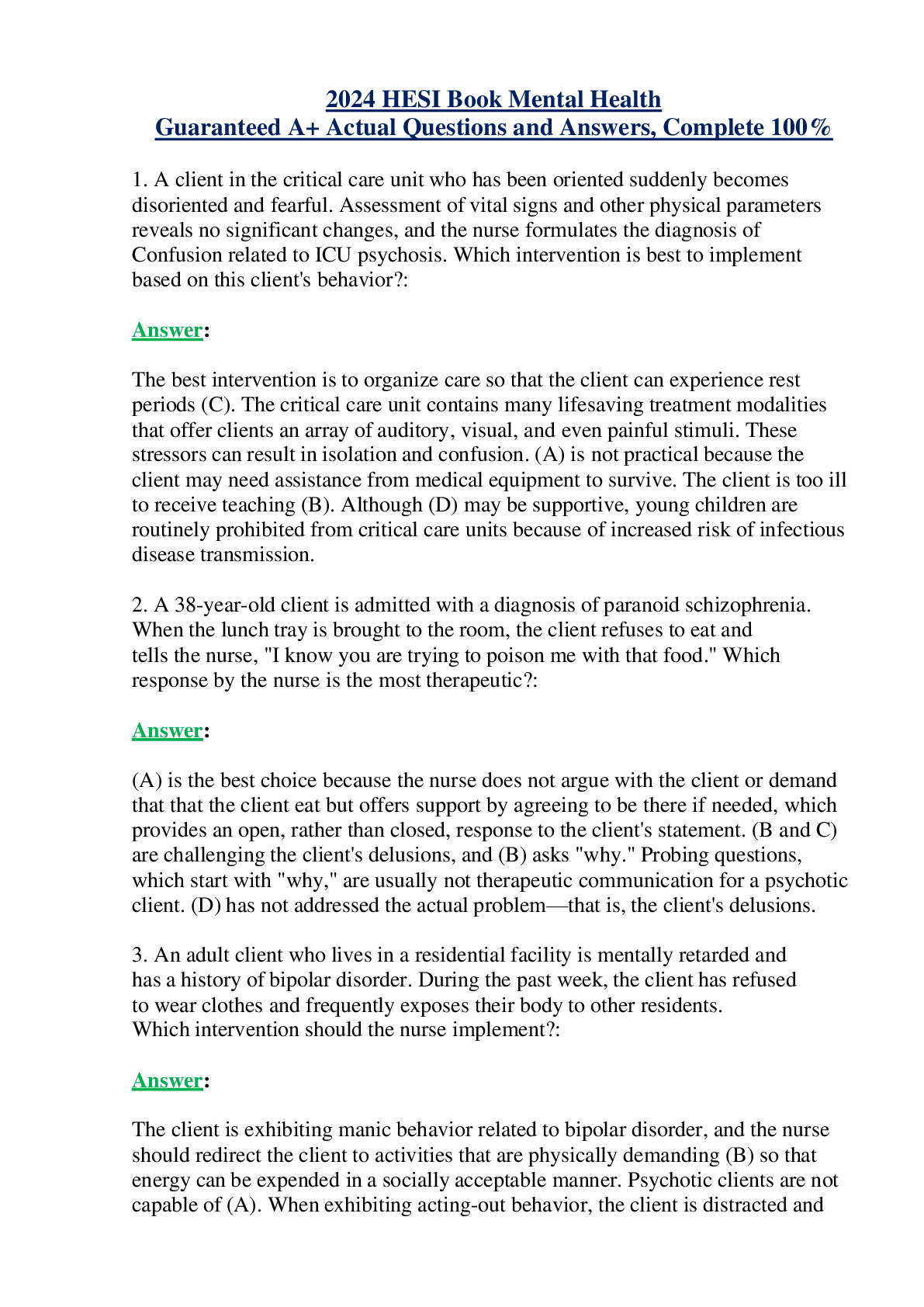
Buy this document to get the full access instantly
Instant Download Access after purchase
Buy NowInstant download
We Accept:

Reviews( 0 )
$13.00
Can't find what you want? Try our AI powered Search
Document information
Connected school, study & course
About the document
Uploaded On
May 06, 2024
Number of pages
9
Written in
Additional information
This document has been written for:
Uploaded
May 06, 2024
Downloads
0
Views
15

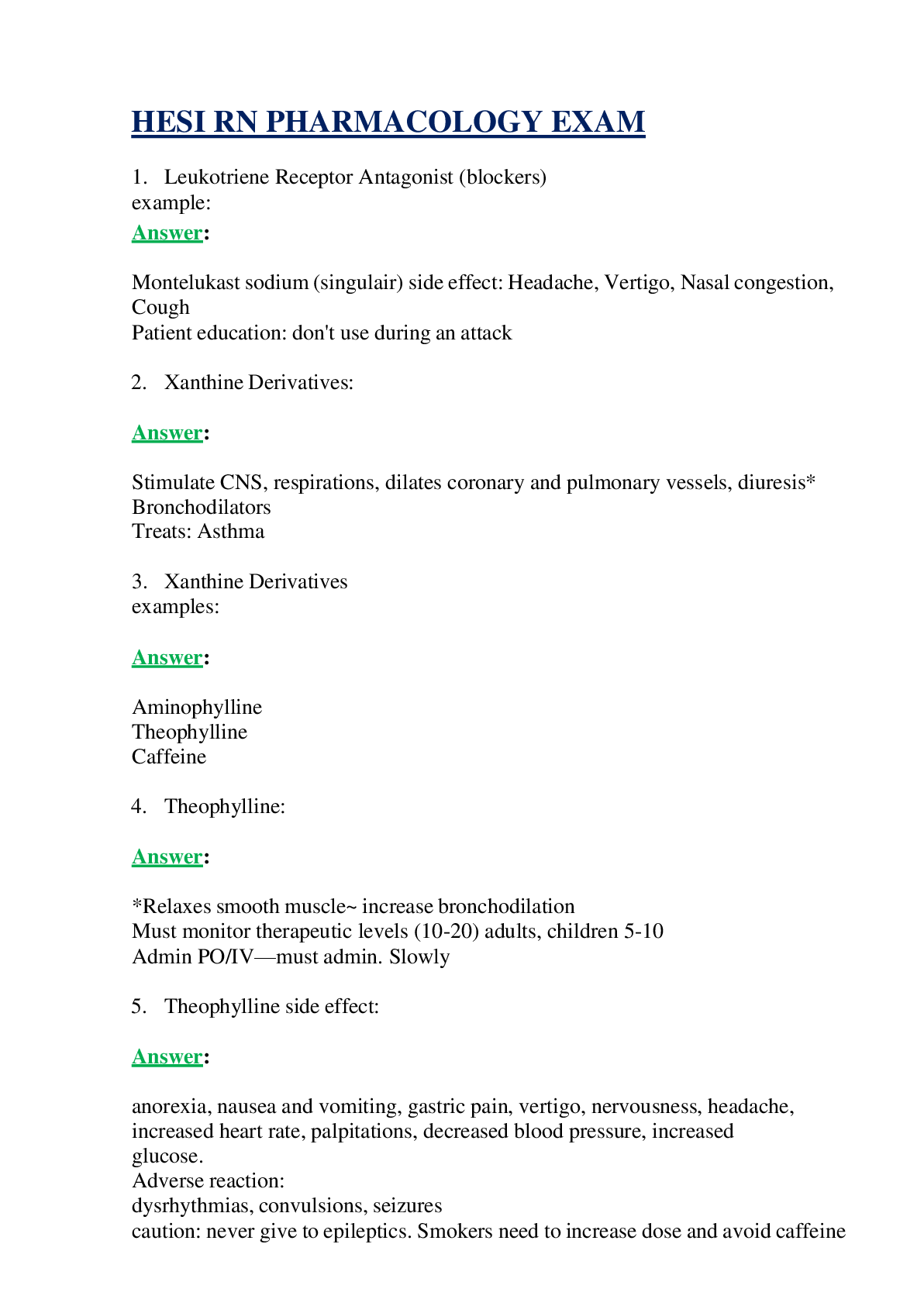
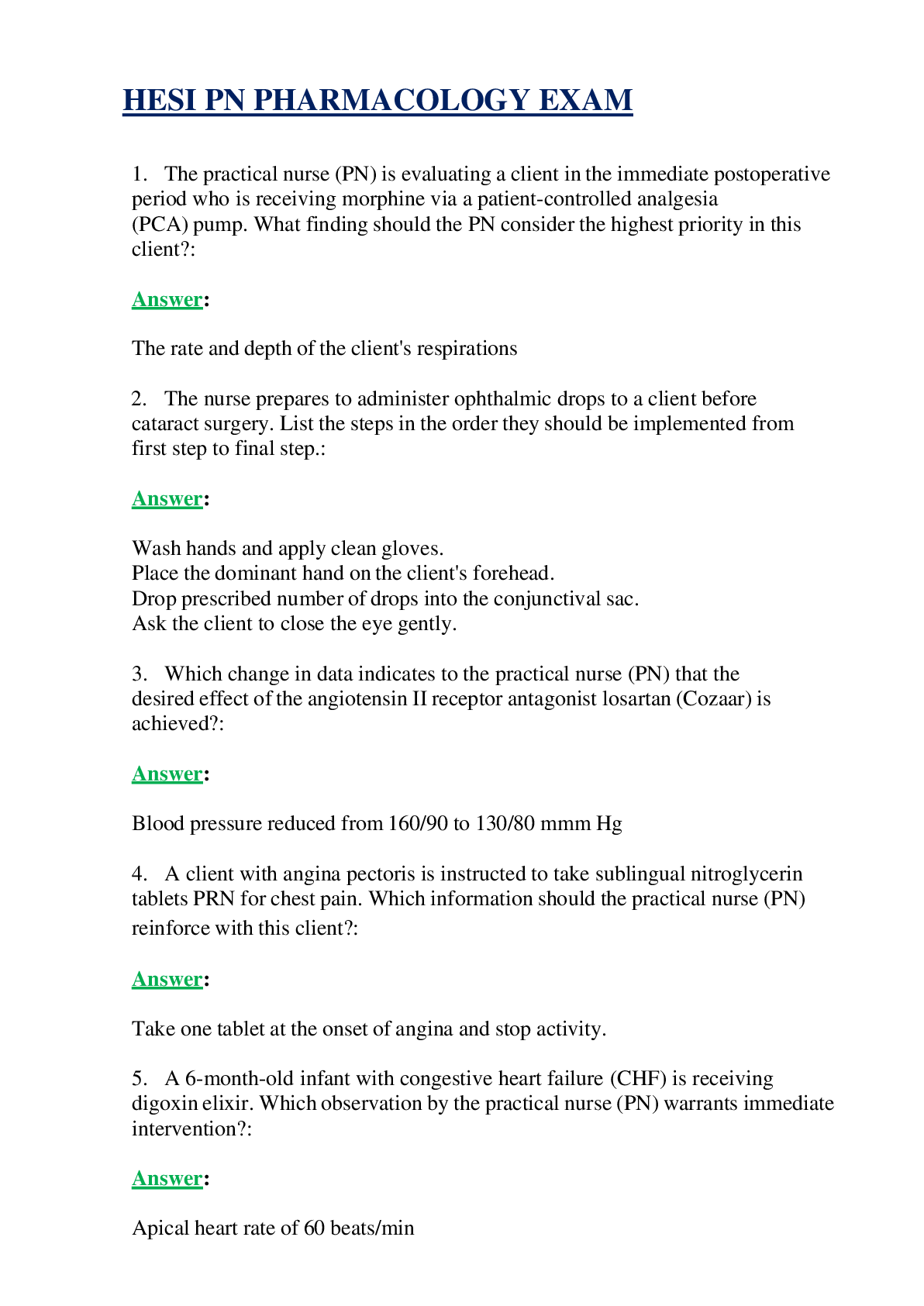
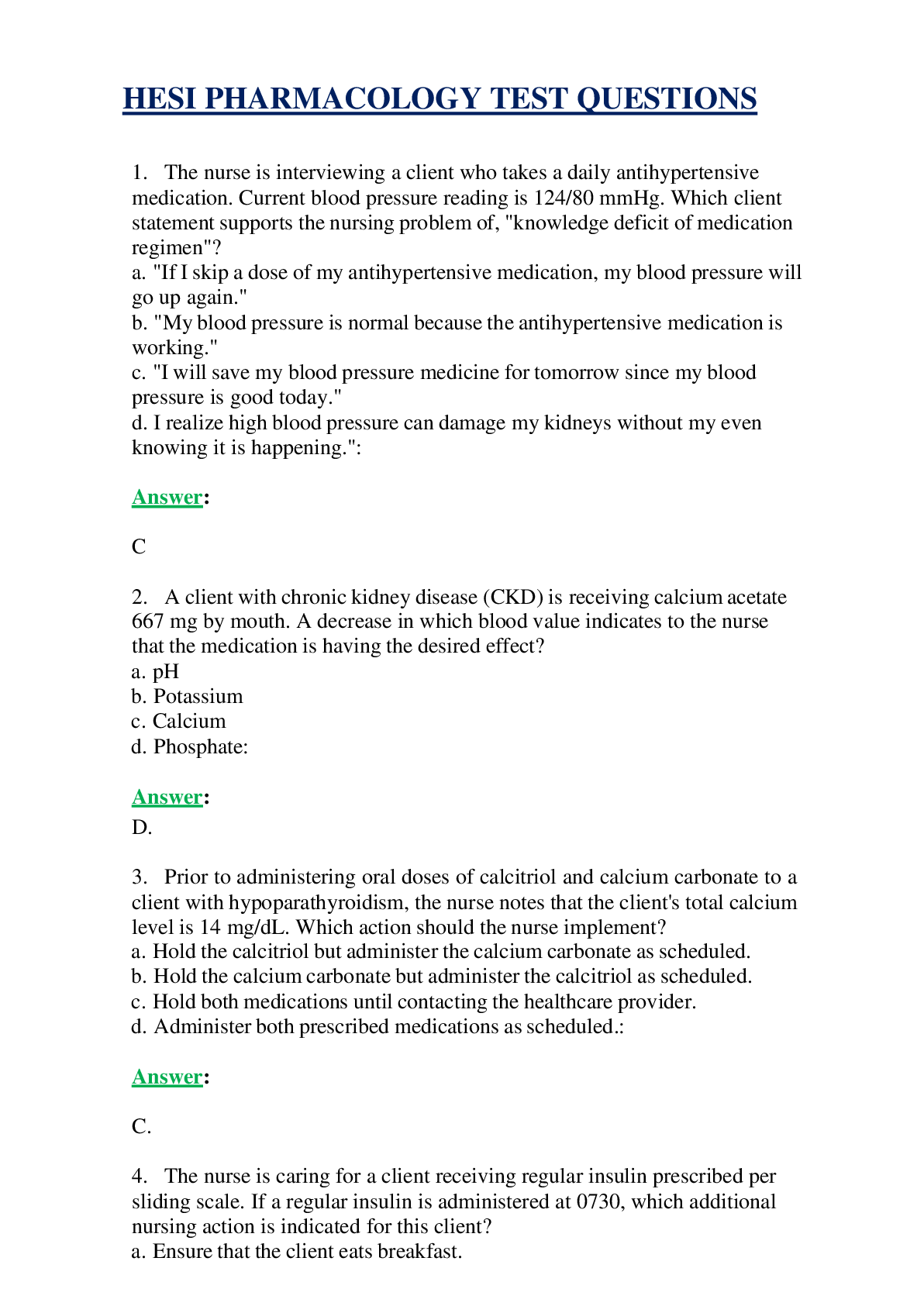
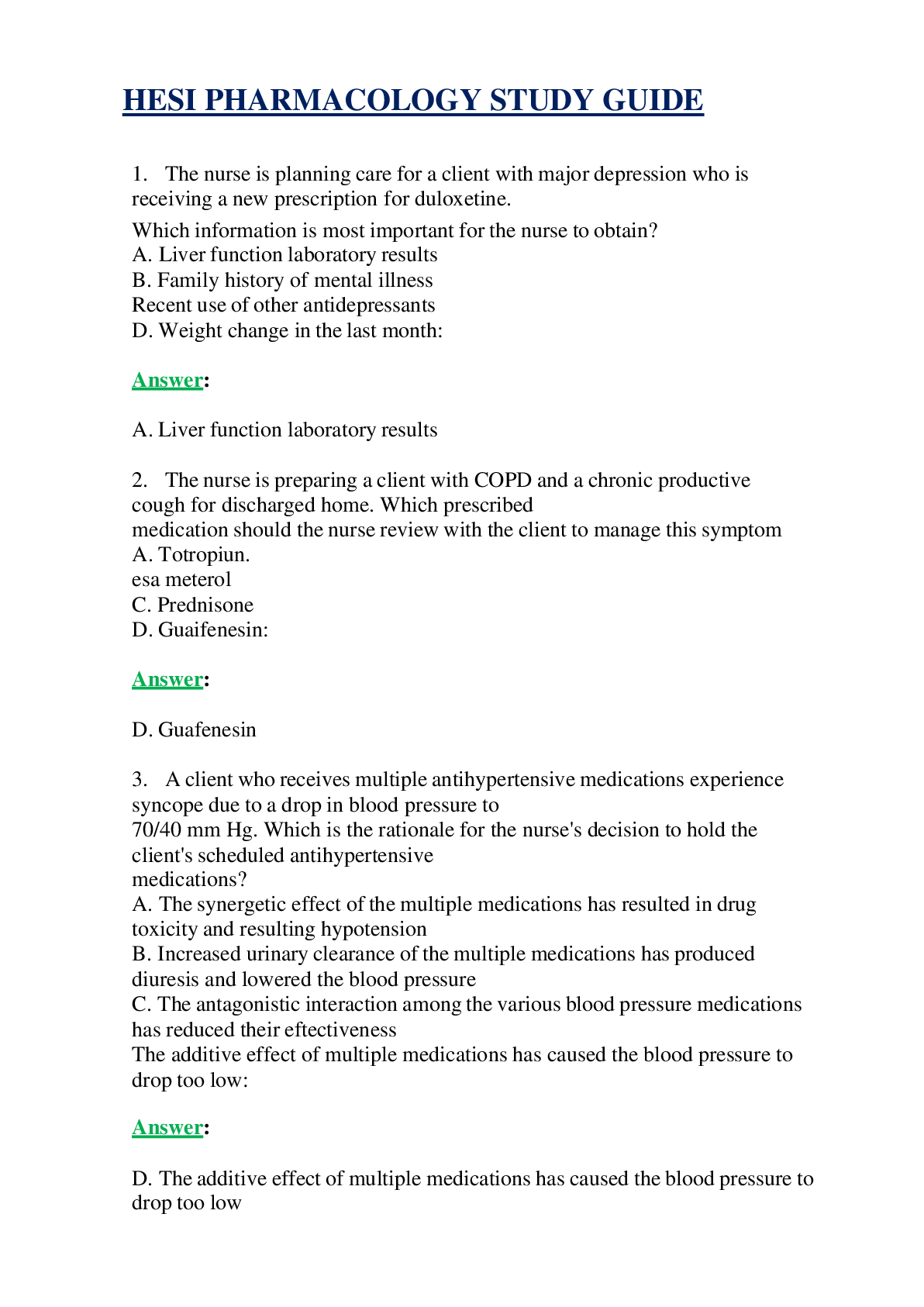
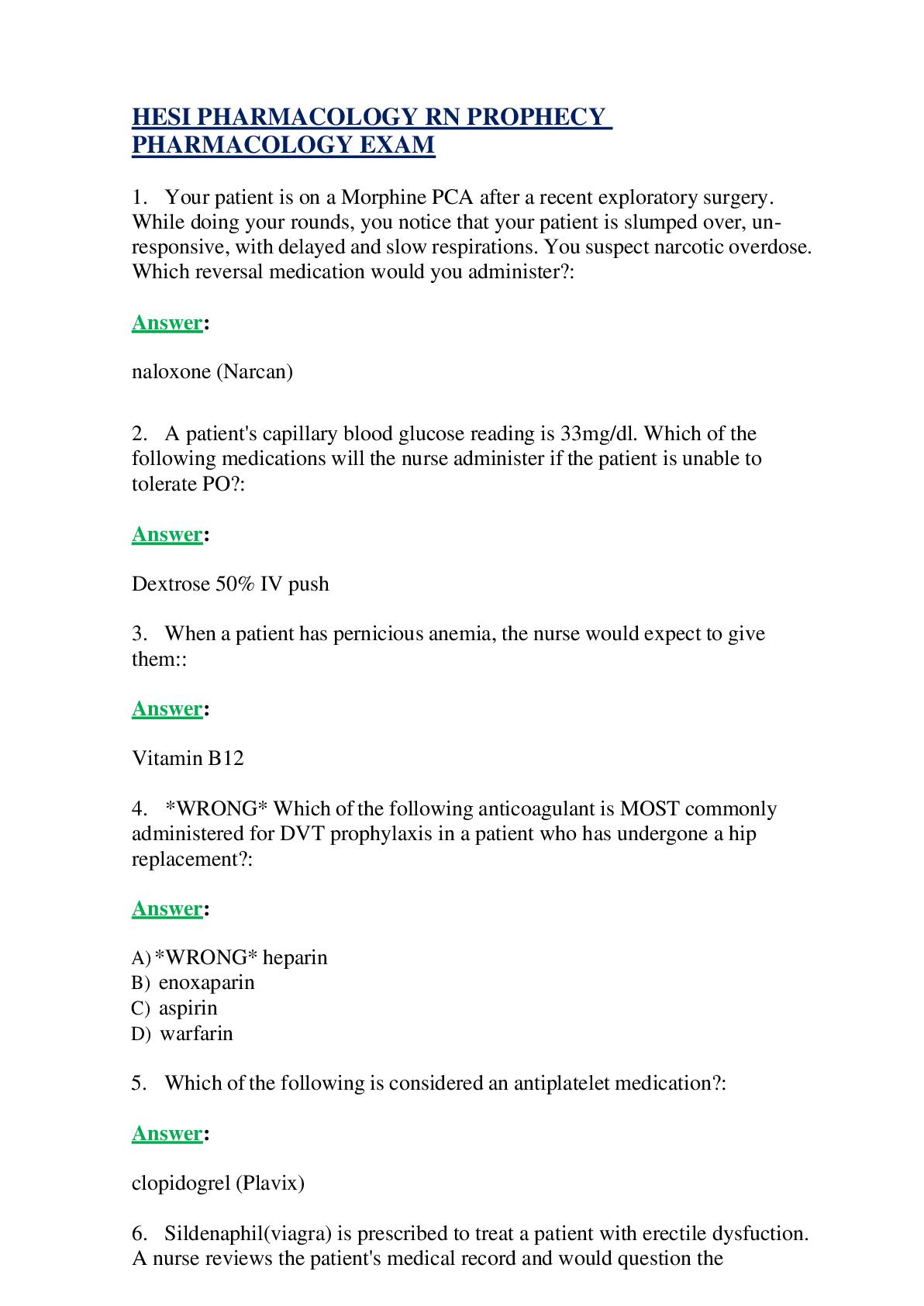
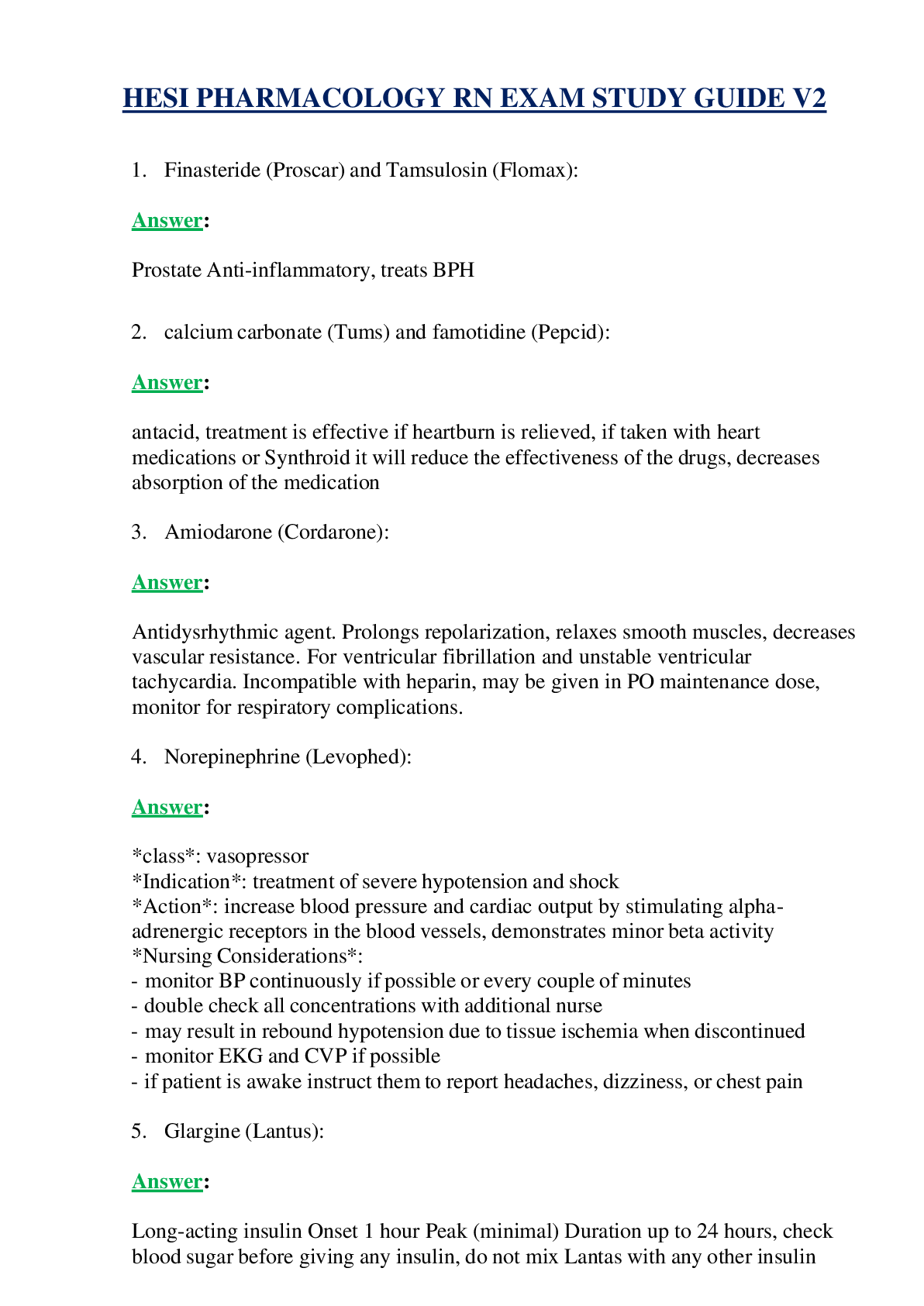
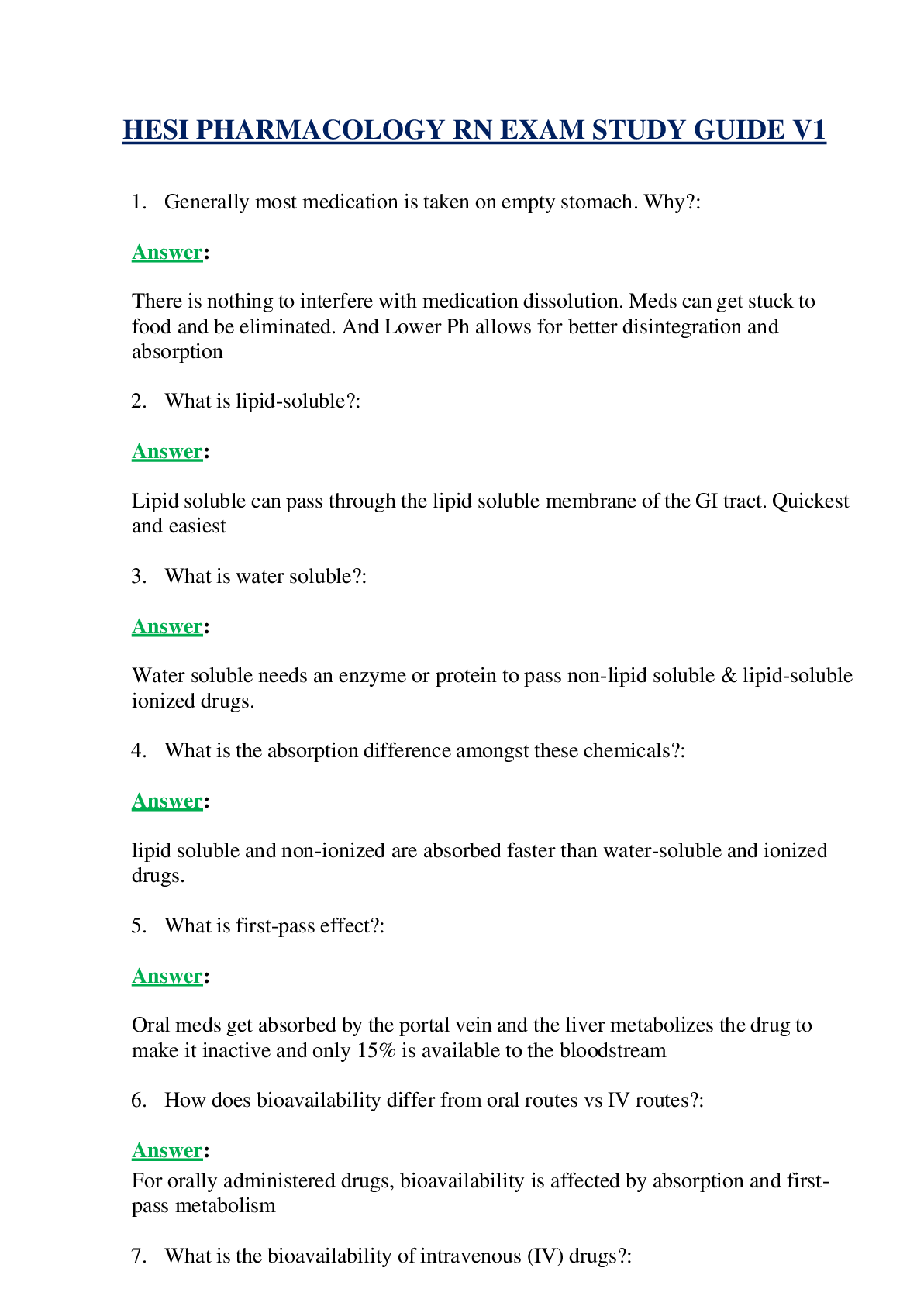
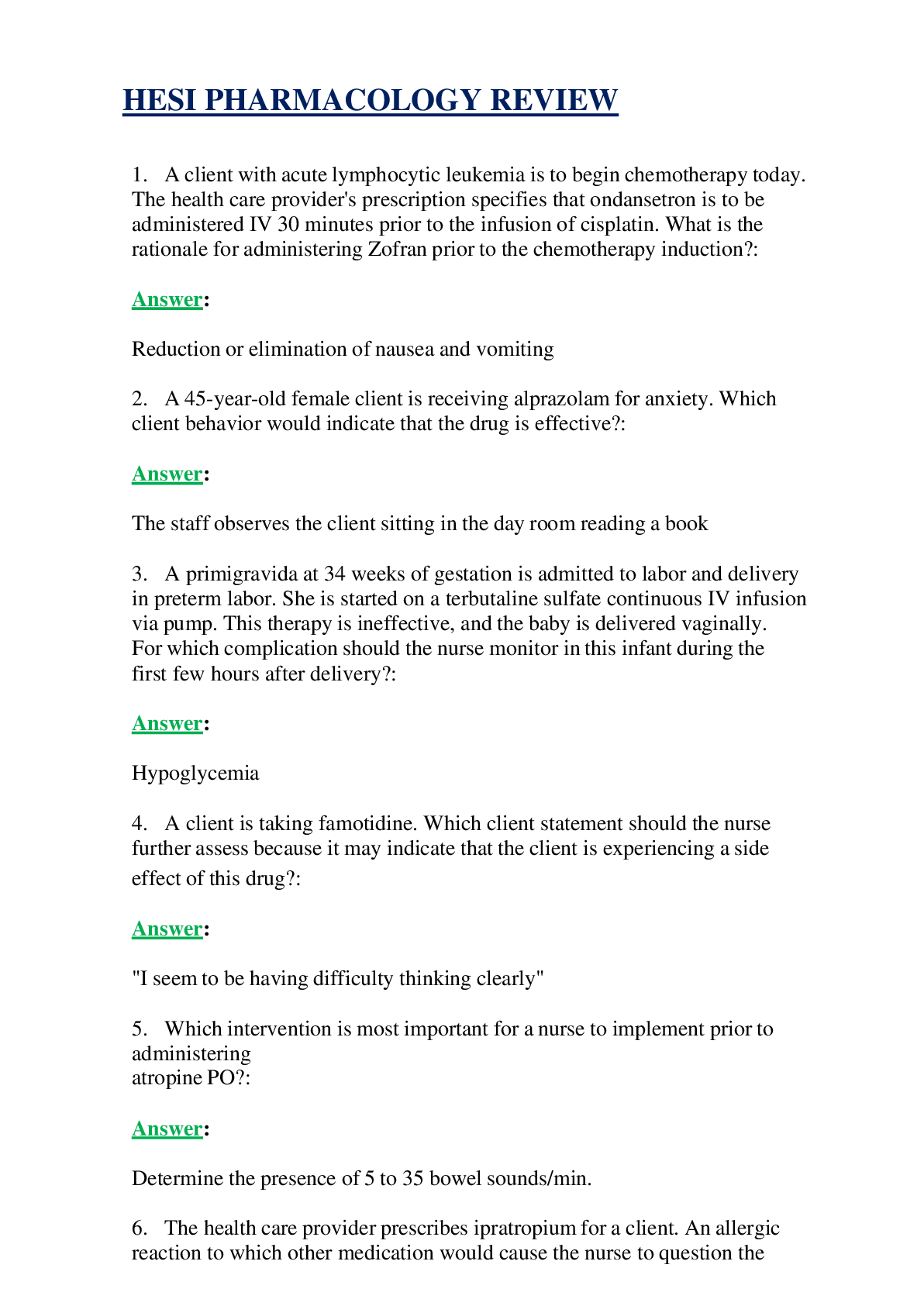
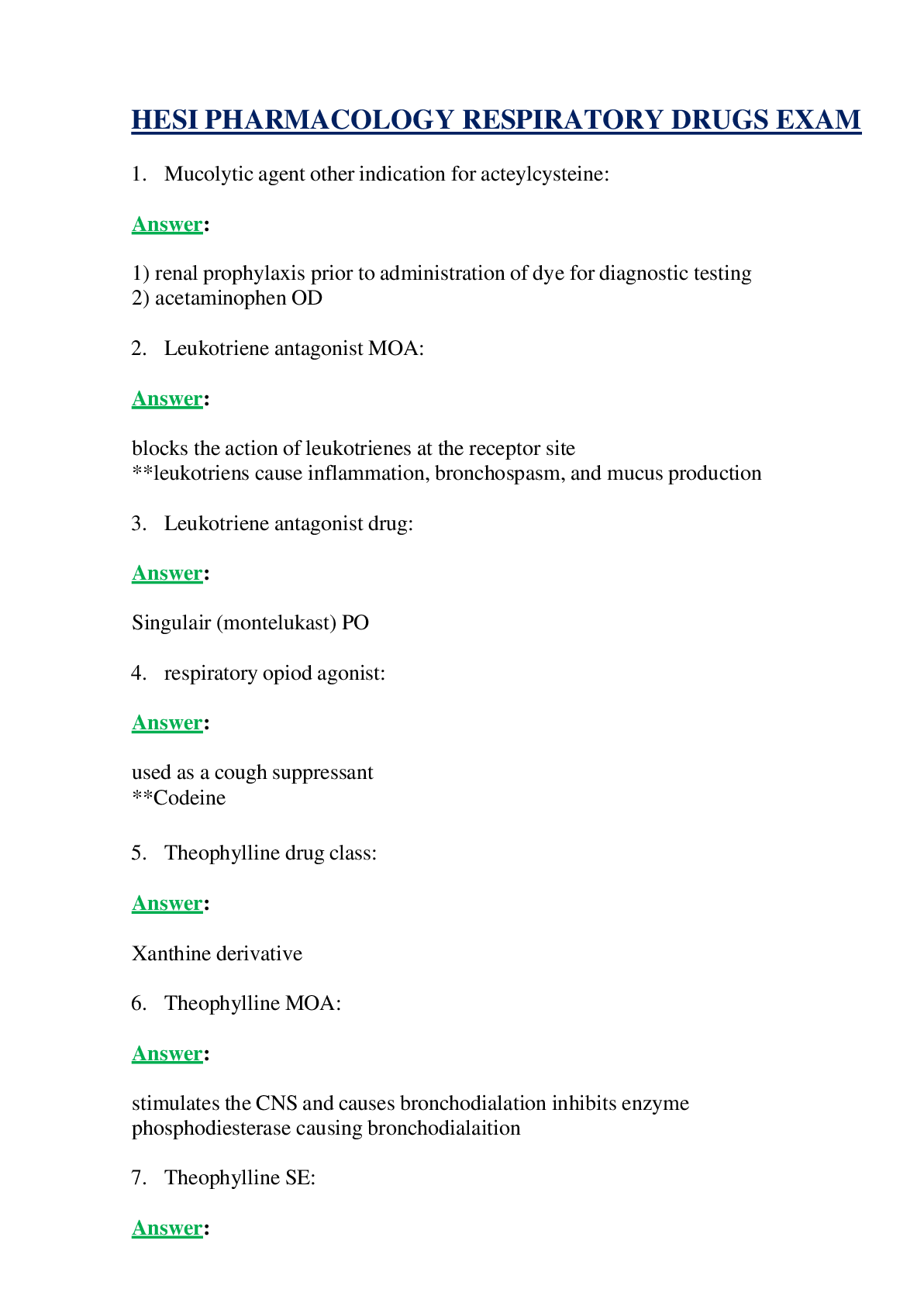
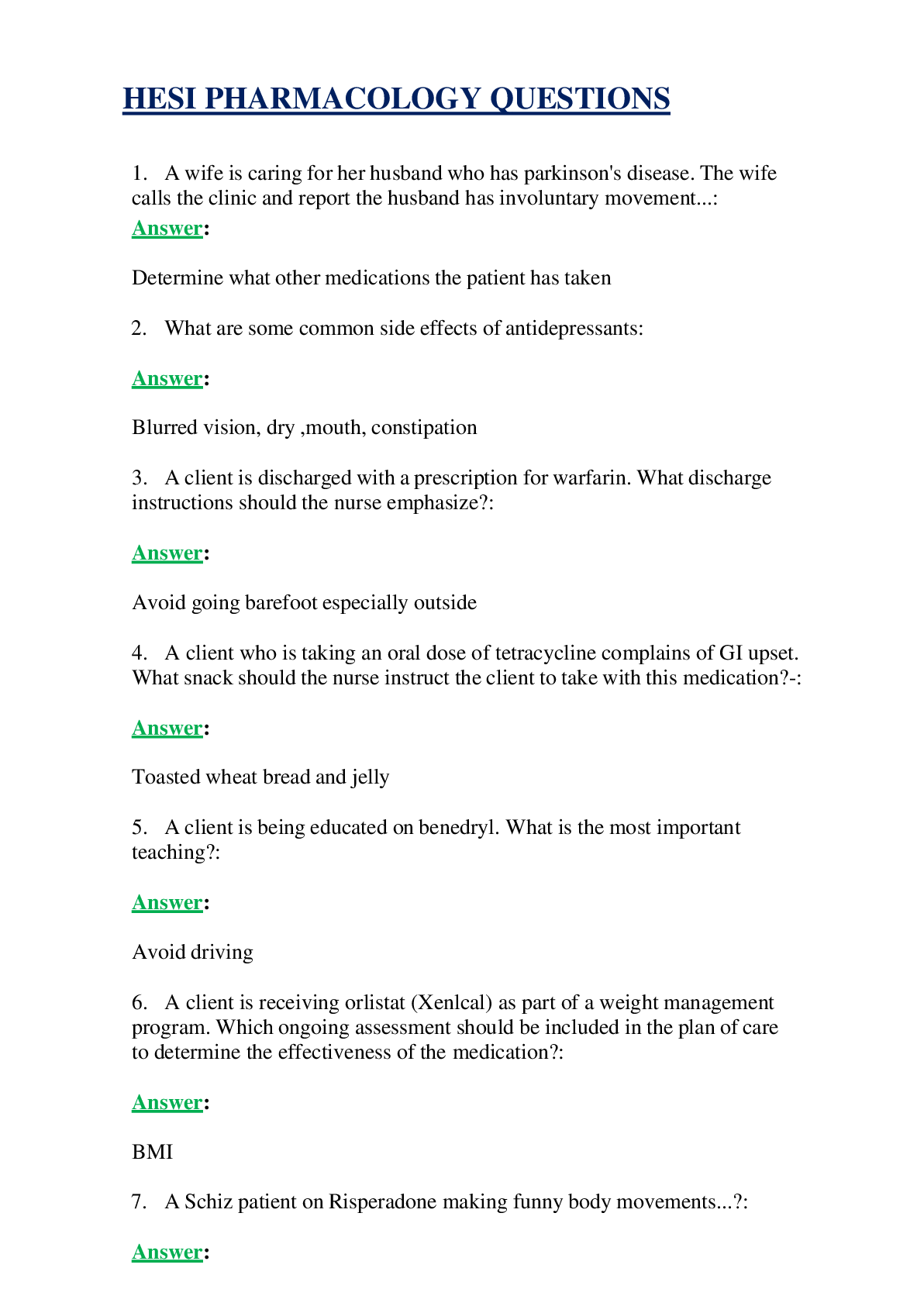
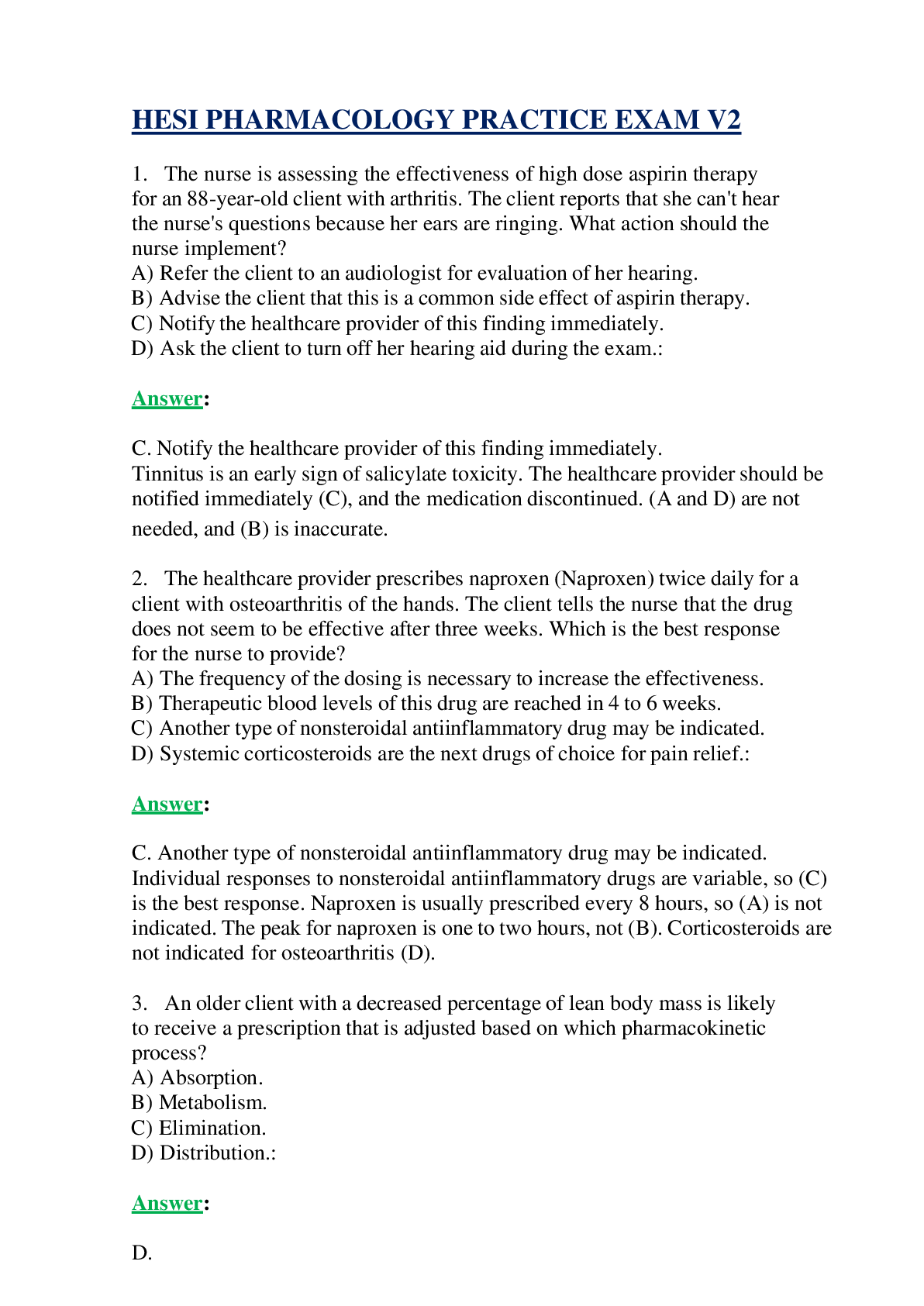
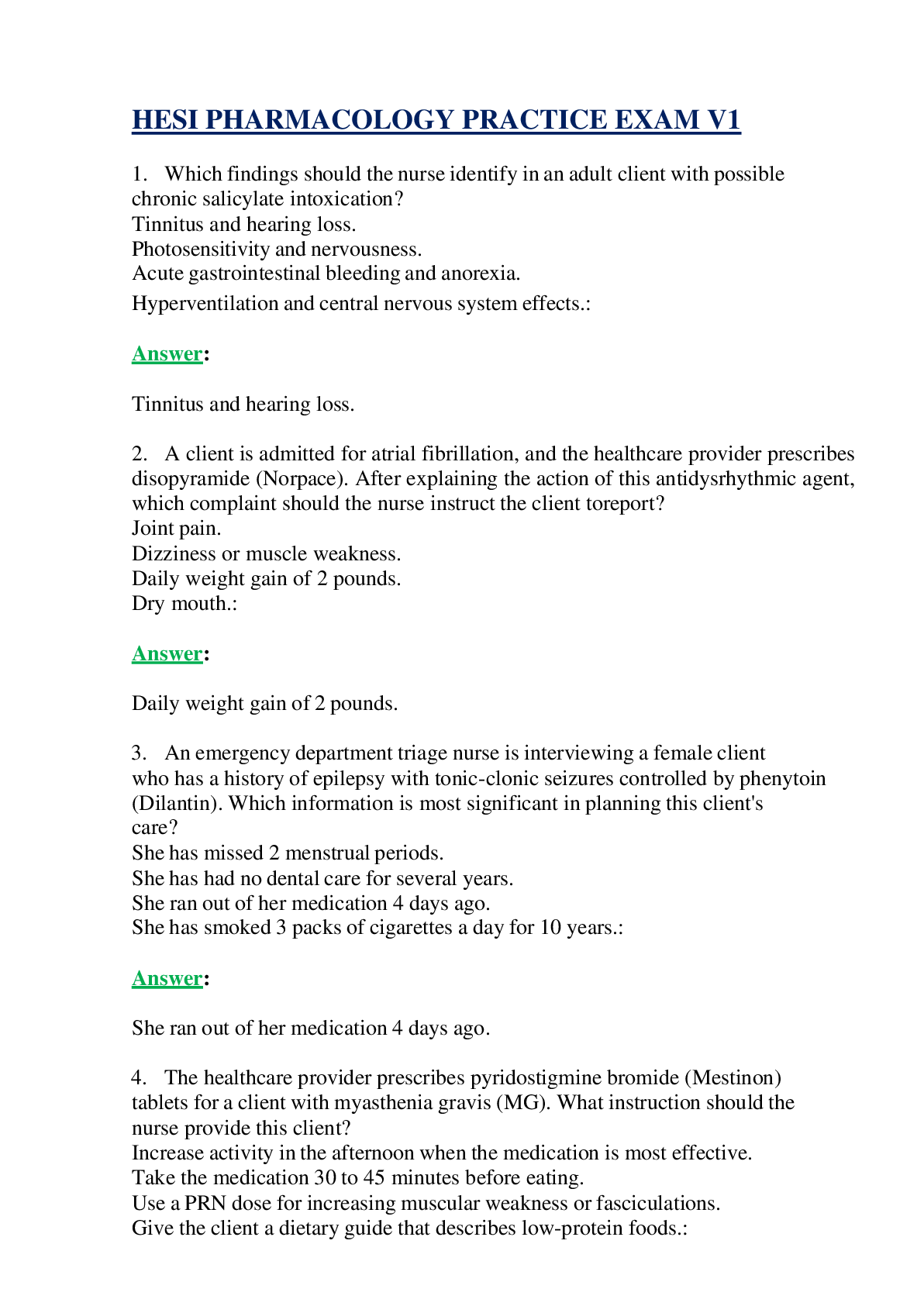


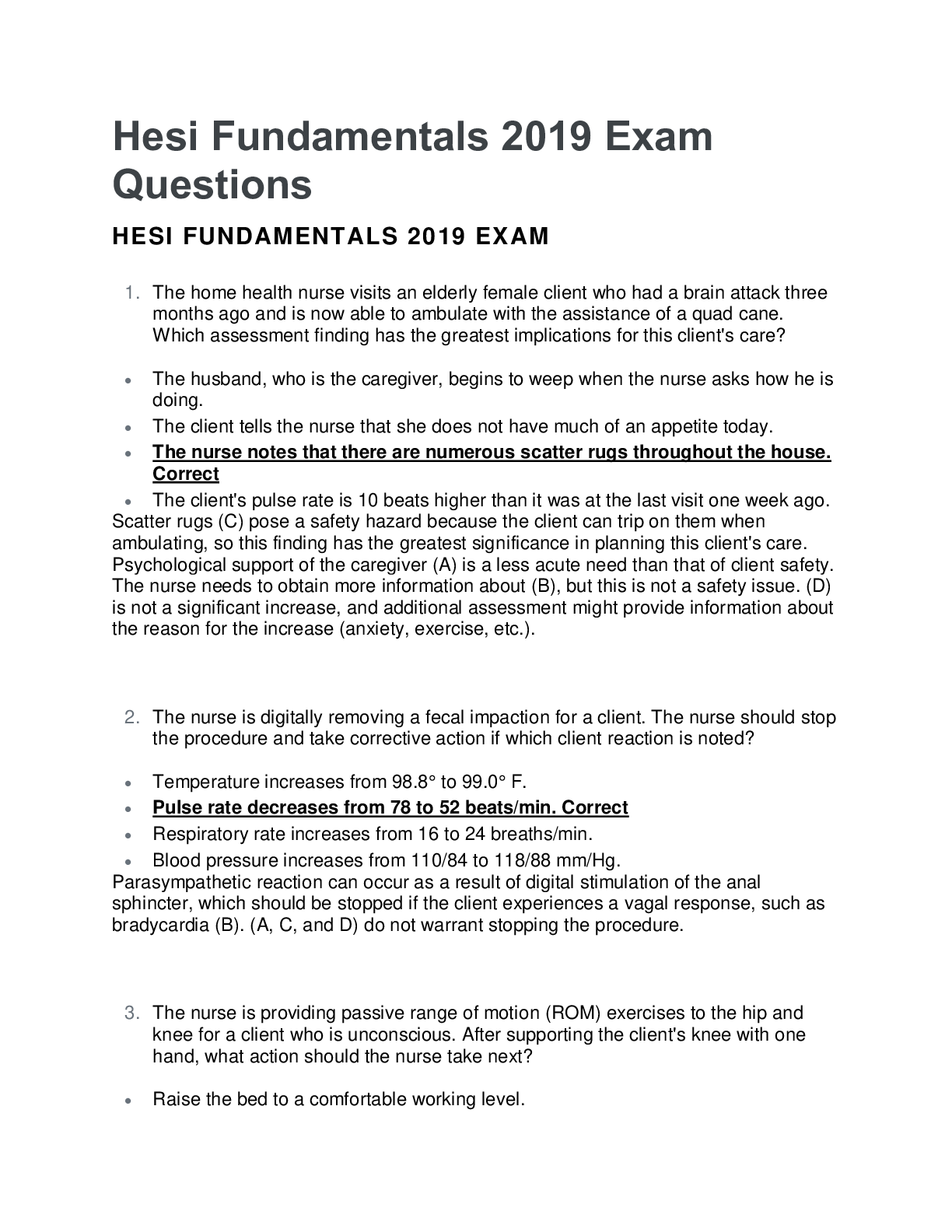

 Correct Study Guide Questions and Answers, Download to Score A.png)
 Correct Study Guide Questions and Answers, Download to Score A.png)
 Correct Study Guide Questions and Answers, Download to Score A.png)
 Correct Study Guide Questions and Answers, Download to Score A.png)
 Correct Study Guide Questions and Answers, Download to Score A.png)
 Correct Study Guide Questions and Answers, Download to Score A.png)
.png)
, Questions and Answers, All Correct Study Guide, Download to Score A.png)

